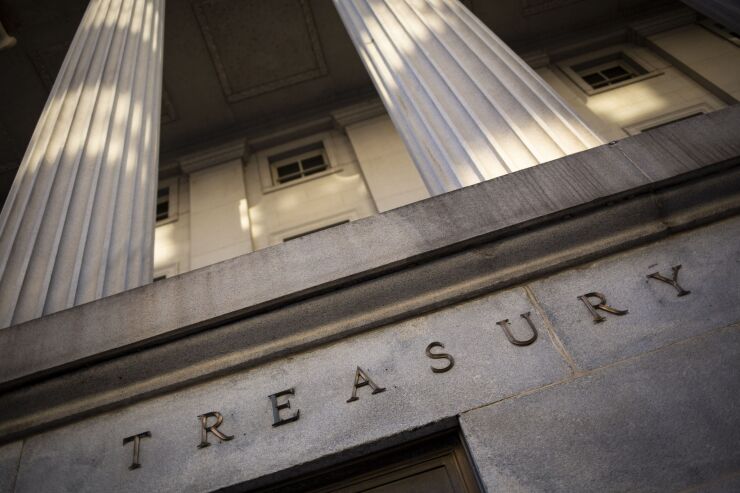
WASHINGTON — The Treasury Department's Financial Crimes Enforcement Network Friday proposed reforms to the U.S. anti-money-laundering regime, requiring financial institutions to step up their existing AML controls and sharpening anti-terrorism programs to ensure they are effective, risk-based and reasonably designed.
"More than ever, financial institutions are partnering with government to address a range of serious law enforcement and national security issues with illicit financing implications, from fentanyl trafficking to Russia's illegal invasion of Ukraine," said Deputy Secretary of the Treasury Wally Adeyemo. "It has been an important priority for Treasury to issue this proposed rule that promotes a more effective and risk-based regulatory and supervisory regime that directs financial institutions to focus their … programs on the highest priority threats."
The rule proposes amendments
The rule requires institutions to integrate government-wide AML/CFT priorities — including high risk priorities like combating fentanyl trafficking and Russian money laundering — into their programs. The rule also establishes new technical amendments to ensure consistency across different types of financial institutions.
A Fincen fact sheet on the proposed rule notes the amendments were developed in consultation with several key regulatory bodies, including the Federal Reserve, the Office of the Comptroller of the Currency, the Federal Deposit Insurance Corporation and the National Credit Union Administration "in order to collectively issue proposed amendments to their respective [Bank Secrecy Act] compliance program rules for the institutions they supervise."
Fincen officials say the proposal compels firms to develop internal policies, designate a compliance officer, train employees and conduct independent audits to promote compliance. Furthermore, it seeks to enhance cooperation between financial institutions and government authorities,
"Today's publication is a significant milestone in Fincen's efforts to implement the AML Act," said Fincen Director Andrea Gacki. "The proposed rule is a critical part of our efforts to ensure that the AML/CFT regime is working to protect our financial system from long standing threats like corruption, fraud, and international terrorism, as well as rapidly evolving and acute threats, such as domestic terrorism, and ransomware and other cybercrime."
Today's proposed rule is one of many steps the agency has taken in response to the legal overhaul enacted by the 2020 Anti-Money Laundering Act. In addition to higher standards for AML compliance programs,
Fincen will take written comments on the proposed rule for 60 days after publication in the Federal Register, which is currently scheduled for July 3. That schedule would put the deadline for comment on Sept. 1.






